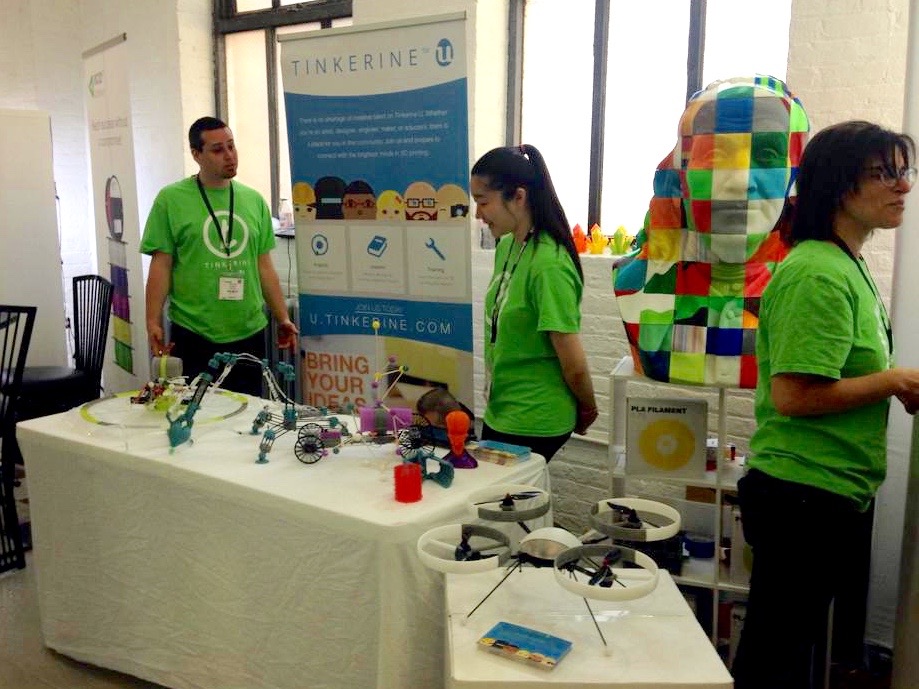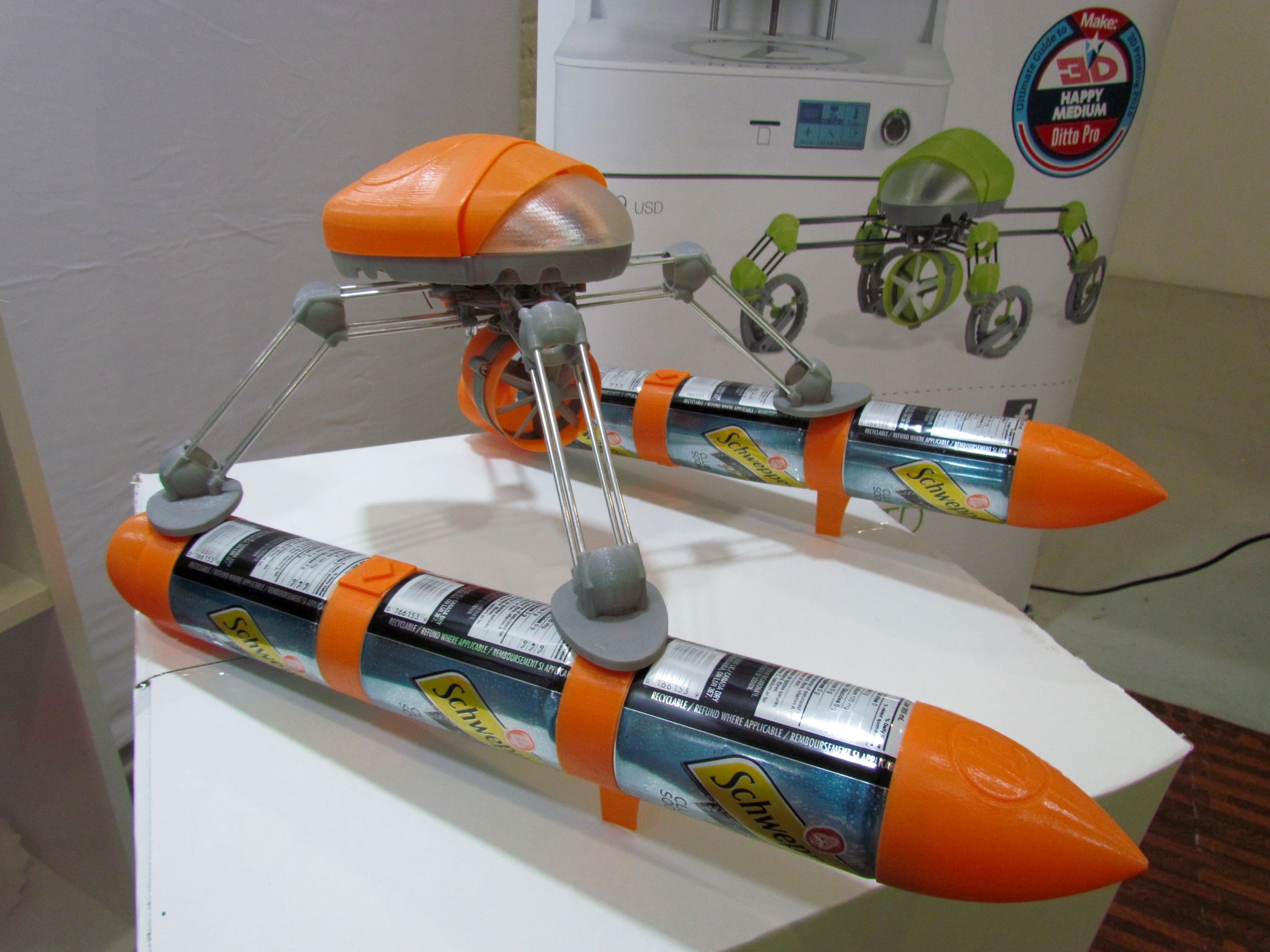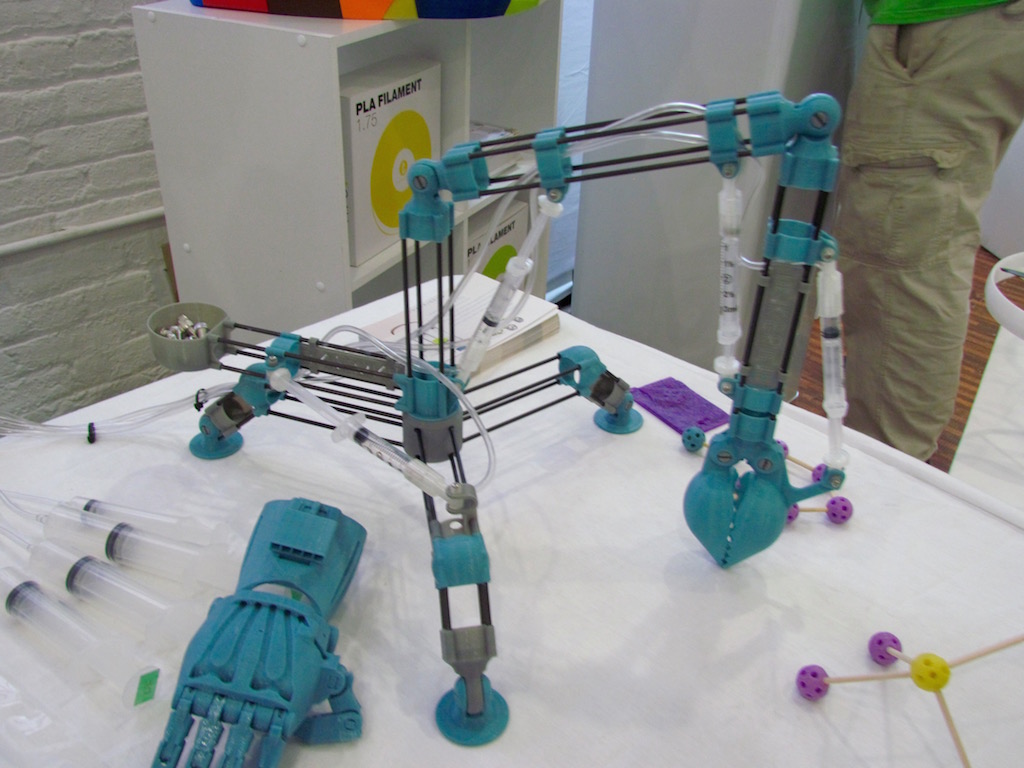
We’ve been speaking with Tinkerine, a Vancouver-based manufacturer of personal 3D printing gear. It seems they’re now focusing on education.
While the company has long had solid 3D printing hardware, their focus is directly on the education market. Tinkerine’s Todd Blatt explained that includes creation of a ton of content usable by students and teachers.
The content includes lesson plans and projects, all using 3D printing equipment and software.

A key part of the educational program is projects, such as this air-powered boat shown here, made from a combination of 3D printed components and commonly available non-3D printed scrap. If you have a 3D printer and some cans, you can make this. And everyone has cans!
Another very interesting project we saw was this mechanical digger. The machine is fully articulated and powered by manually-driven air syringes that take the role of hydraulics. The digger uses four separate syringes to produce motion on all moveable components, including the bucket.

All projects have a definite and useful outcome. We think this is the right approach, as the most interesting objects are always more than just 3D printed parts; they should include other elements, such as electronics, motors, radios, sensors and other machine bits. Tinkerine’s projects take students through the process of making something real – and using 3D printing, too.
Blatt also explained that many of the projects employ reusable components and subsystems, meaning a class could recycle work from a prior project to speed up a subsequent project.
This is certainly a benefit to the education market, but it demonstrates a phenomenon facing most small 3D printer manufacturers.
These companies typically produce a terrific machine and initially sell it to DIY makers who have interest in technical features and capabilities. However, as a company grows, it may find it “runs out” of clients from that market and sales could slow.
The trick for continued success is to find a niche within the 3D printing space and focus tightly on it. In the case of Tinkerine, they’ve chosen to focus on Education, but other companies may tune their offerings to Architects, Entertainment, Designers, Artists or any of dozens of specific fields.
While any of these domains could make use of 3D printing, they’re a lot more likely to if a company were to give them a starter kit to make it easier to get going.
We expect to see many more such focused offerings – but in different markets – as the large number of smaller 3D printer manufacturers grow out of their initial set of clients.
Via Tinkerine

